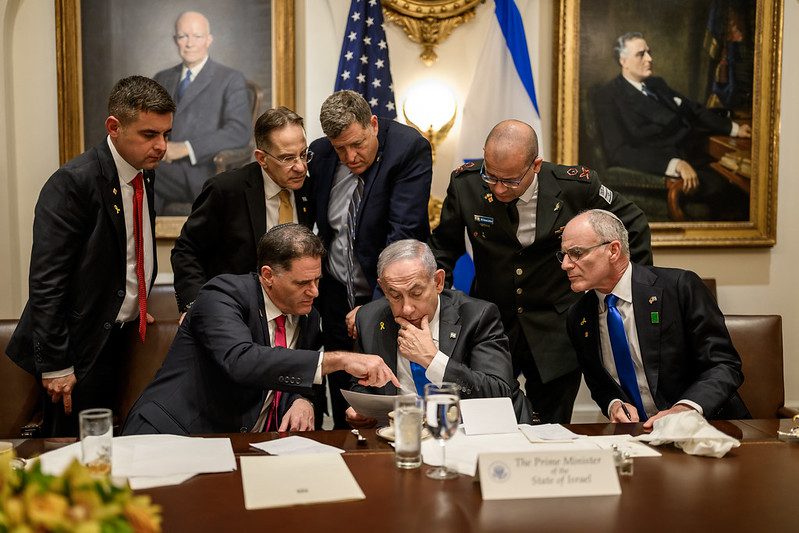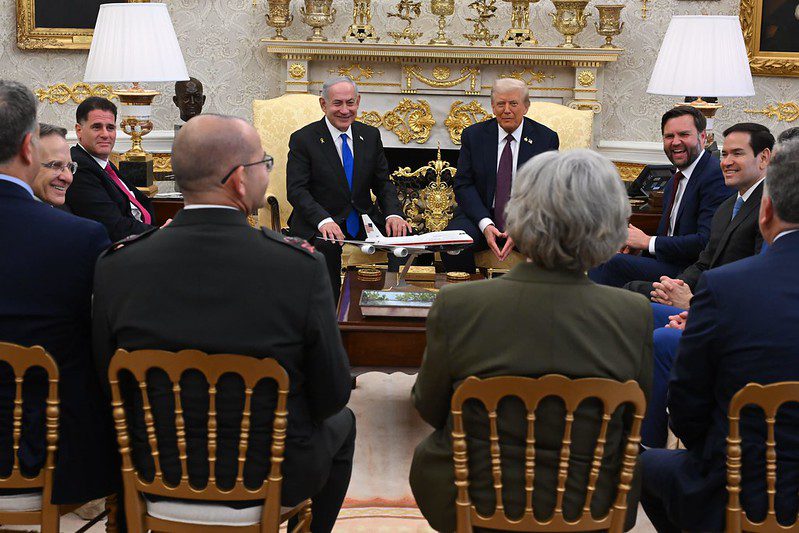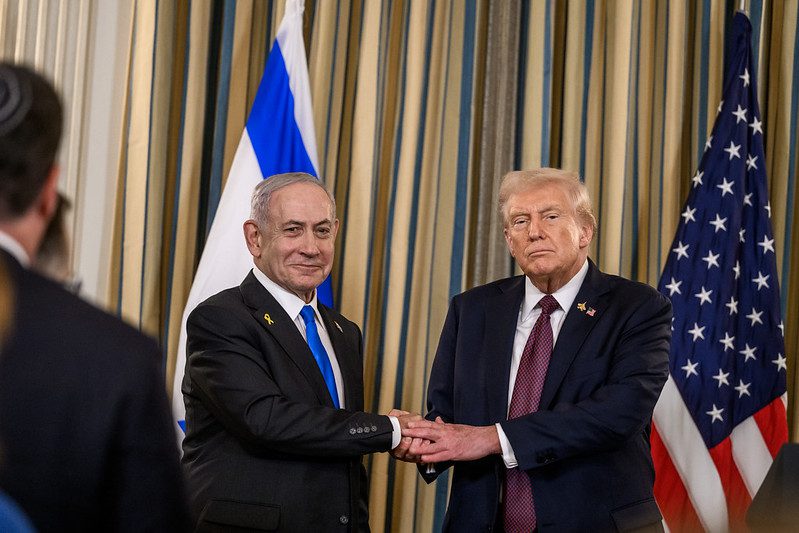U.S. President Donald Trump’s latest peace initiative for Gaza, unveiled on September 29, 2025, presents a bold attempt to end the two-year-long conflict between Israel and Hamas. The 20-point plan, announced alongside Israeli Prime Minister Benjamin Netanyahu, outlines a vision for a demilitarised Gaza under international governance. While the proposal has garnered support from Israeli leadership and some Arab nations, it has also sparked criticism and skepticism, particularly regarding its feasibility and implications for Palestinian sovereignty.
The plan stipulates an immediate ceasefire, contingent upon Hamas’s agreement to disarm and release all hostages, both living and deceased, within 72 hours. In exchange, Israel would release 1,700 Palestinian detainees and 250 individuals serving life sentences. For each Israeli hostage returned, Israel would release the remains of 15 Palestinians. Hamas has yet to officially respond, though reports suggest they are reviewing the proposal “in good faith”.
A central aspect of the plan is the establishment of a transitional governance structure led by an international “Board of Peace,” co-chaired by Trump and former British Prime Minister Tony Blair. This board would oversee the demilitarisation of Gaza, the destruction of Hamas infrastructure, and the reconstruction of the region. The plan also includes provisions for humanitarian aid, economic development, and the creation of a special economic zone to stimulate growth.
Gaza Security and the International Stabilisation Force
Another key element is the creation of a temporary International Stabilisation Force (ISF), developed in partnership with Arab and international actors. The ISF would deploy immediately in Gaza to train and support vetted Palestinian police forces, consulting closely with Jordan and Egypt given their regional expertise. This force is envisioned as the long-term internal security solution, working alongside Israel and Egypt to secure border areas, prevent weapons smuggling, and facilitate the safe flow of goods for Gaza’s reconstruction.

Image: Israeli Prime Minister Benjamin Netanyahu reviews the U.S. peace plan for Gaza – The White House / Daniel Torok
A deconfliction mechanism would be set up to avoid clashes between actors. Importantly, the plan stresses that Israel will not occupy or annex Gaza. Instead, as the ISF establishes stability, the Israel Defence Forces (IDF) would gradually withdraw according to agreed milestones tied to demilitarisation. The IDF would progressively hand over territory to the ISF until fully withdrawn, apart from a limited perimeter security presence. Should Hamas reject or delay the proposal, Trump’s plan states that reconstruction and aid efforts would still move ahead in “terror-free” areas transferred from the IDF to the ISF.
As part of wider diplomatic efforts surrounding the initiative, Israel has issued a formal apology to Qatar for an earlier military strike that strained relations between the two. In response, Qatar has agreed to resume its role as a mediator in the peace process, working alongside the United States, Egypt, and Jordan to facilitate dialogue and ensure the implementation of humanitarian and reconstruction measures.
Gaza Sovereignty, Criticism, and Uncertain Outcomes
The proposal has elicited a range of responses. Israeli leaders, including Netanyahu, have endorsed the plan, viewing it as a potential pathway to peace. Opposition leaders Benny Gantz and Yair Lapid have also expressed support, emphasising the opportunity to free hostages and ensure Israel’s security.
In contrast, many Palestinians and their supporters have criticised the plan as a form of external control reminiscent of colonial rule. Concerns have been raised about the exclusion of Hamas from governance and the involvement of Tony Blair, whose legacy remains controversial in the region. The United Nations has called for all parties to commit to the plan, highlighting the need for a comprehensive and inclusive approach to peace.

Image: Prime Minister Netanyahu with U.S. President Trump at the White House – Avi Ohayon / GPO
While the plan’s emphasis on demilitarisation and reconstruction offers a potential framework for peace, its reliance on the disarmament of Hamas and the establishment of an international governance structure may face significant challenges. Hamas’s willingness to comply with the terms remains uncertain, and the feasibility of implementing such a comprehensive plan in a region with deep-seated political and ideological divisions is questionable.
Furthermore, the proposal’s focus on external governance raises concerns about Palestinian sovereignty and self-determination. The involvement of international figures like Trump and Blair may be perceived as undermining efforts to establish a Palestinian-led political framework. The plan’s vagueness regarding the future of Palestinian statehood adds to the uncertainty surrounding its long-term viability.
President Trump’s Gaza peace plan represents a significant shift in U.S. foreign policy and offers a bold approach to resolving one of the most protracted conflicts in modern history. However, its success hinges on the willingness of all parties to engage constructively and the ability to address the complex political and humanitarian issues at the heart of the conflict. Without a clear commitment to Palestinian self-determination and an inclusive political process, the plan risks being perceived as another external imposition rather than a genuine path to peace.
Featured image via The White House – Joyce N. Boghosian




